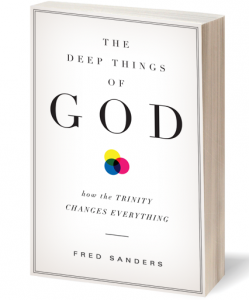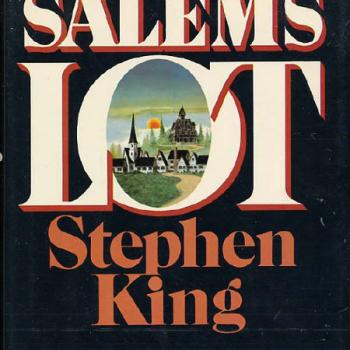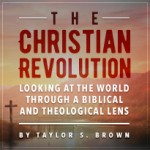
I am recording an email conversation that a fellow seminary student and I had a few days ago. As you will read below, “John” (I’ve changed his name for privacy purposes) and I discussed why deep study of systematic and dogmatic theology seems to be lacking in Wesleyan circles. Of course, my response here is influenced by my own context within conservative, predominantly Methodist, Wesleyan circles. People in other contexts will of course have slightly different—though not utterly contradictory—experiences.
John’s Initial Question:
Taylor,
I’ve been taking Theology of John Wesley this semester and in one class the matter of systematic theology or lack thereof was raised. It was observed that the Wesleyan tradition is profoundly lacking in the area of systematic theology, while strong in biblical theology. I have heard that this is an area which you are passionate about. My curiosity is what is the role/purpose of systematic theology, and how should those from a Wesleyan tradition come to engage systematic theology?
If you have the time to respond I would appreciate it. If it would be easier to explain in person over lunch or something I am open to that as well. Thank you and have a great day!
My Response:
Hey John!
Nazarenes have done some noteworthy systematic and dogmatic work. H. Orton Wiley’s 3-volume Christian Theology was written in the mid twentieth century and, along with Oden’s systematics, is still one of the best broadly Wesleyan systematic theologies.
I write all of this to contest the oft-pronounced claim that Wesleyans simply don’t do systematic theological work because (1) it’s just not part of the tradition (the works above show that historically was) or (2) John Wesley never wrote any systematic theology. This is a bit of a red-herring for the simple fact that, as an Anglican, Wesley stood on a gigantic tradition of systematic and dogmatic theological thinking and felt no need to write what he would have viewed as an Anglican dogmatics. Thus, to infer that simply because Wesley didn’t write a systematic theology we don’t have to either is simply a non sequitur. Luther didn’t write a systematic theology either, and that hardly stopped Lutherans.
Systematic/Dogmatic theology is necessary precisely because it helps us to think and speak clearly about the Christian faith. By working out an orderly exposition of the Christian faith—starting with theology proper (the doctrine of God) and moving on logically to the categories which it grounds—we allow not simply our theologians, but also our pastors to think clearly about how the Christian faith encompasses a holistic picture of reality. It is fundamentally an integrative exercise that fosters the cohesive and constructive framing of a worldview for the church. Of course no systematic theological system will ever be completely perfect or comprehensive, for the simple reasons that humans are fallible and finite, and so we will never be able to totally comprehend the Infinite. That does not mean we are excused from working toward ordering our theological thought though. God, as the personal Ground of Being, is fundamentally rational and disorder is fundamentally not of God. God is the one who brings order out of chaos in Genesis 1 and the Church models its whole life after the supreme, Triune Orderer (1 Cor. 14:26-40).
As to how Wesleyans should engage systematic theology, one of the best ways is to simply start reading it. Of course this doesn’t mean you have to start with Karl Barth’s Church Dogmatics. There are some great, accessible one-volume systematics out there that are very amenable to Wesleyan thought. One of best ones that I’d recommend is Stanley Grenz’s Theology for the Community of God. Grenz was an Arminian Baptist who studied under Wolfhart Pannenberg, and so most of what he writes is write on track with Wesleyan sensibilities. You can also start with primers to systematic theology, such as Grenz’s and Roger Olson’s Who Needs Theology? An Invitation to the Study of God. Another good place to start is with books on the systematic-theological doctrine of God. Fred Sanders’ little book, The Deep Things of God: How the Trinity Changes Everything, is great (and he is an Asbury grad!).

Now I will say that one advantage that Wesleyans have when coming to the study of systematic theology is their biblical theological grounding. We are trained to always start with the witness of Scripture and constantly check our theological formulations and categories against it. This helps to prevent the holding of idolatries of systematic categories (such as the hard core Calvinist holding of limited atonement or double-predestination) against overwhelming biblical and theological evidence to the contrary.
I hope that all helps! If you want to talk more in the future, let me know!
Grace and Peace,
Taylor
John:
Blessings,
Me:
You’re very welcome John!












